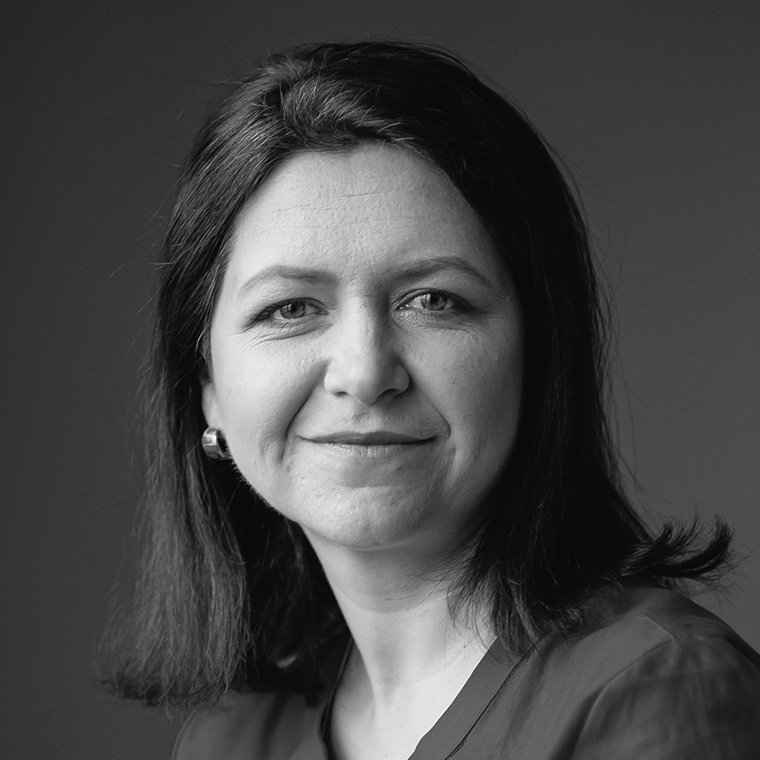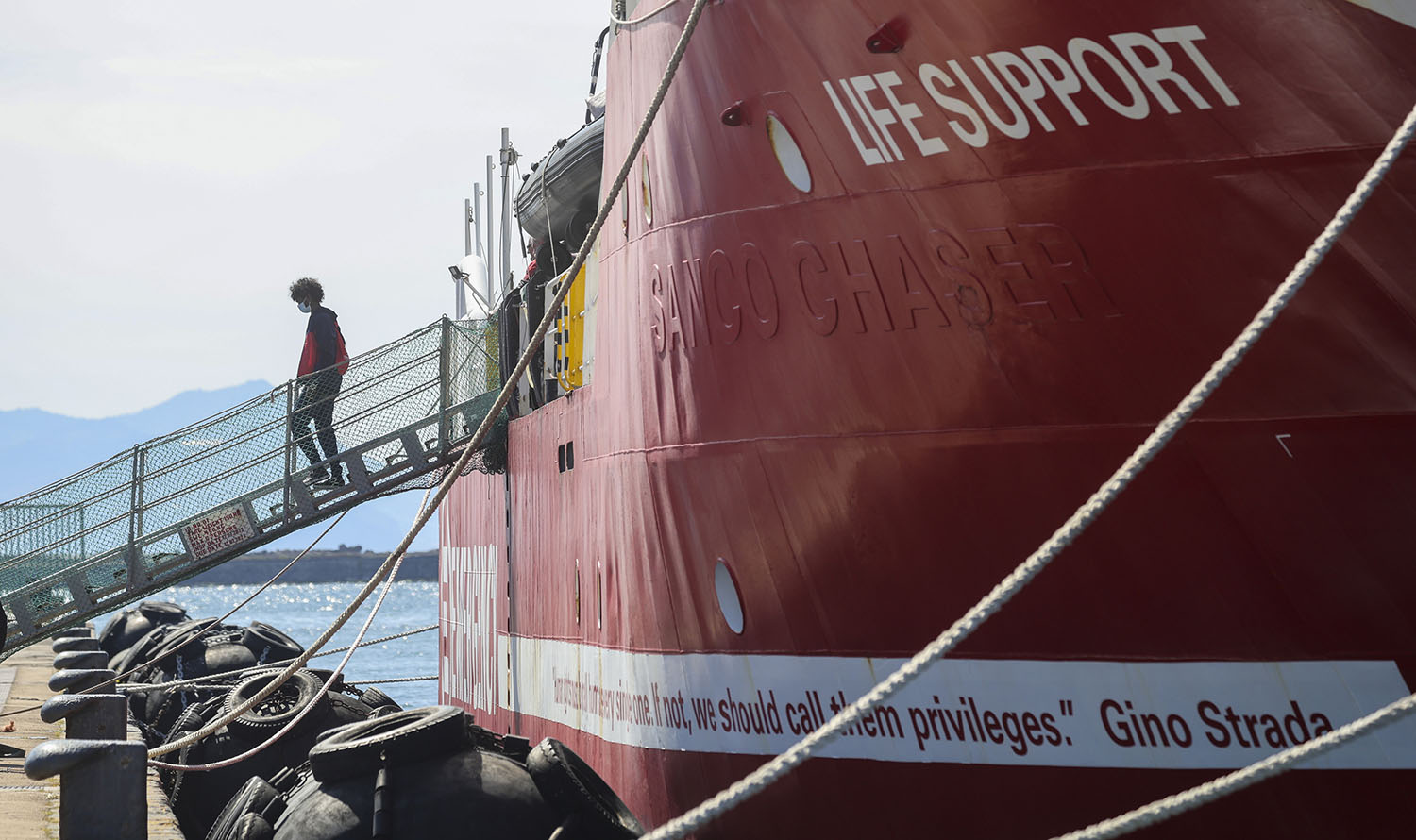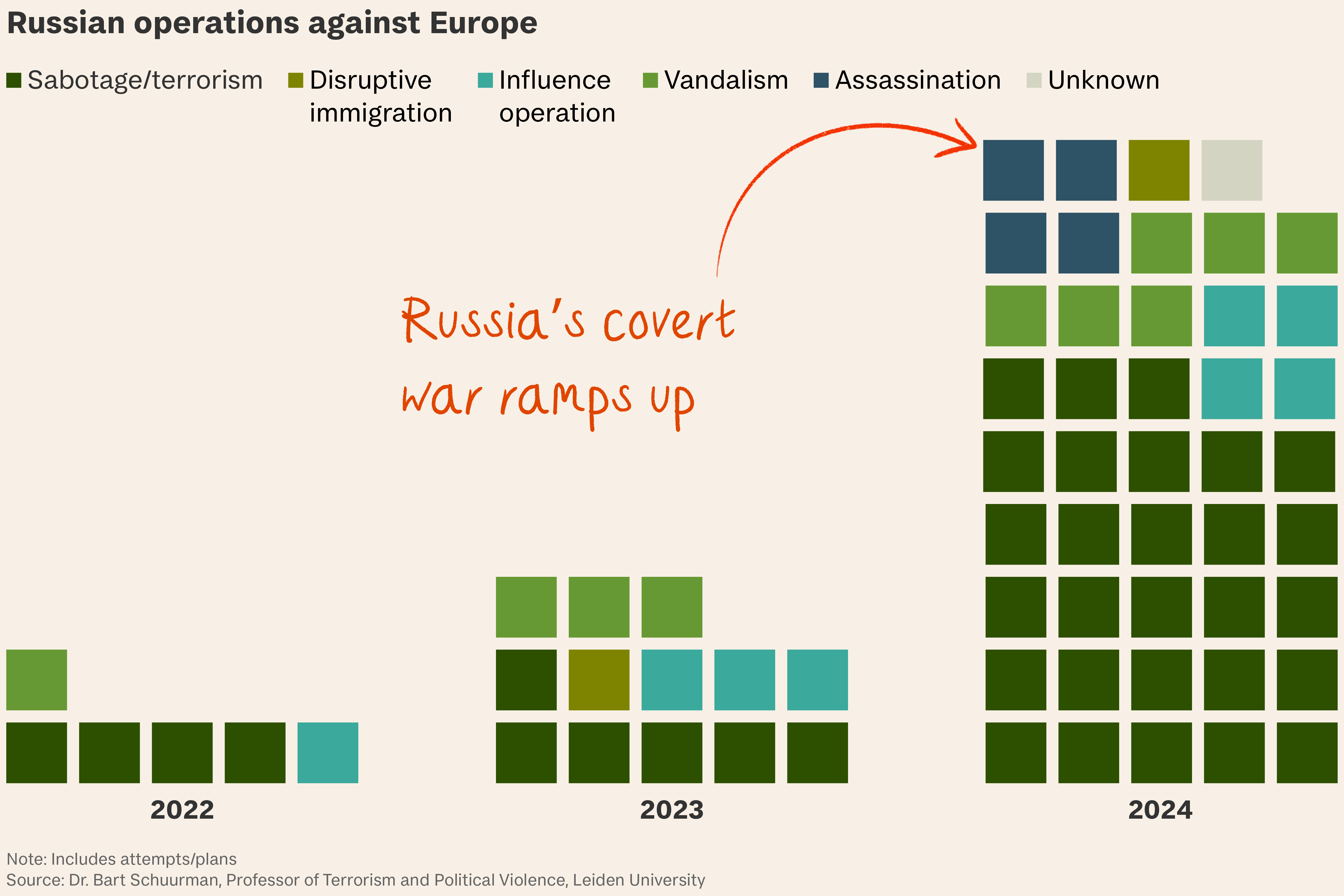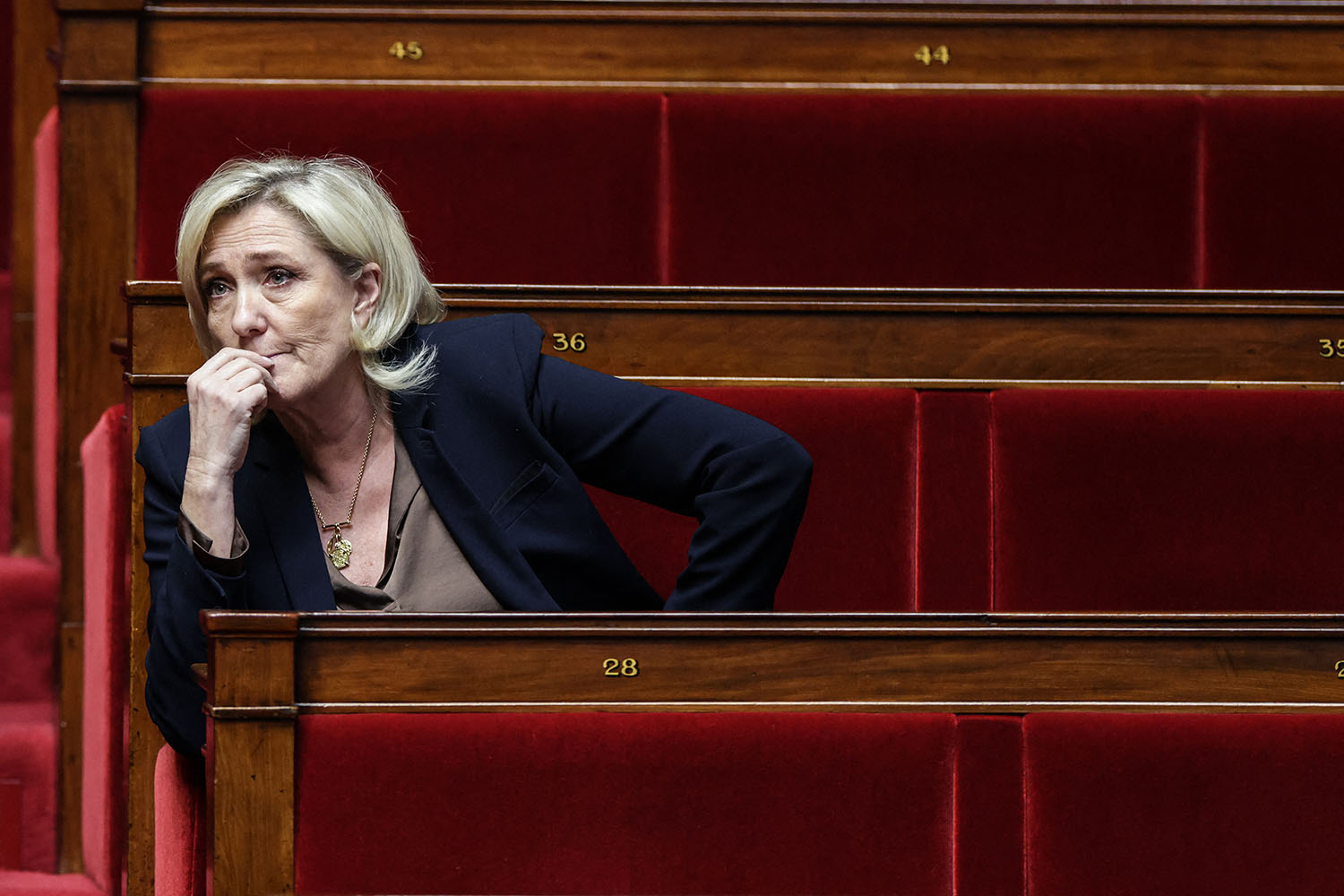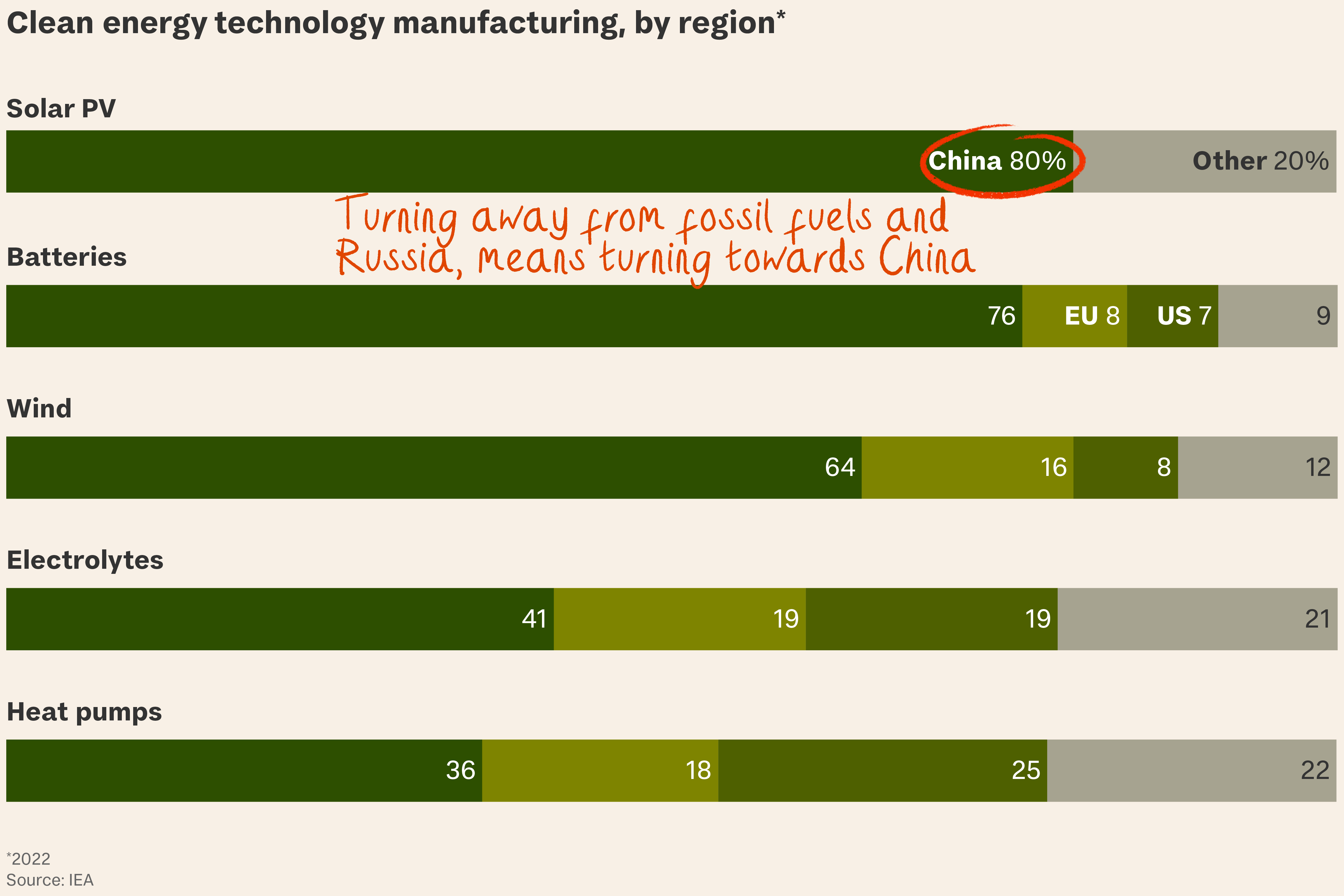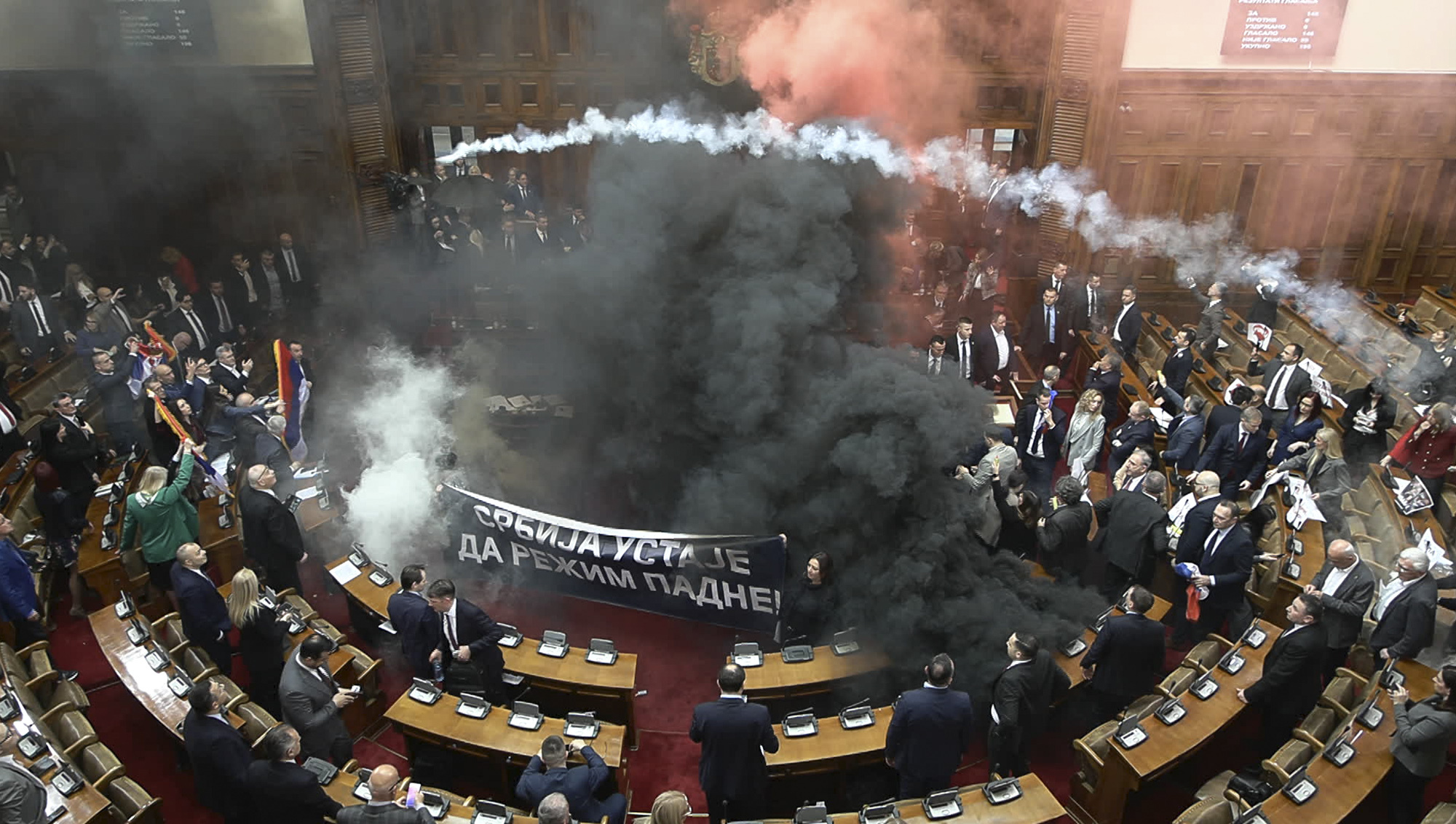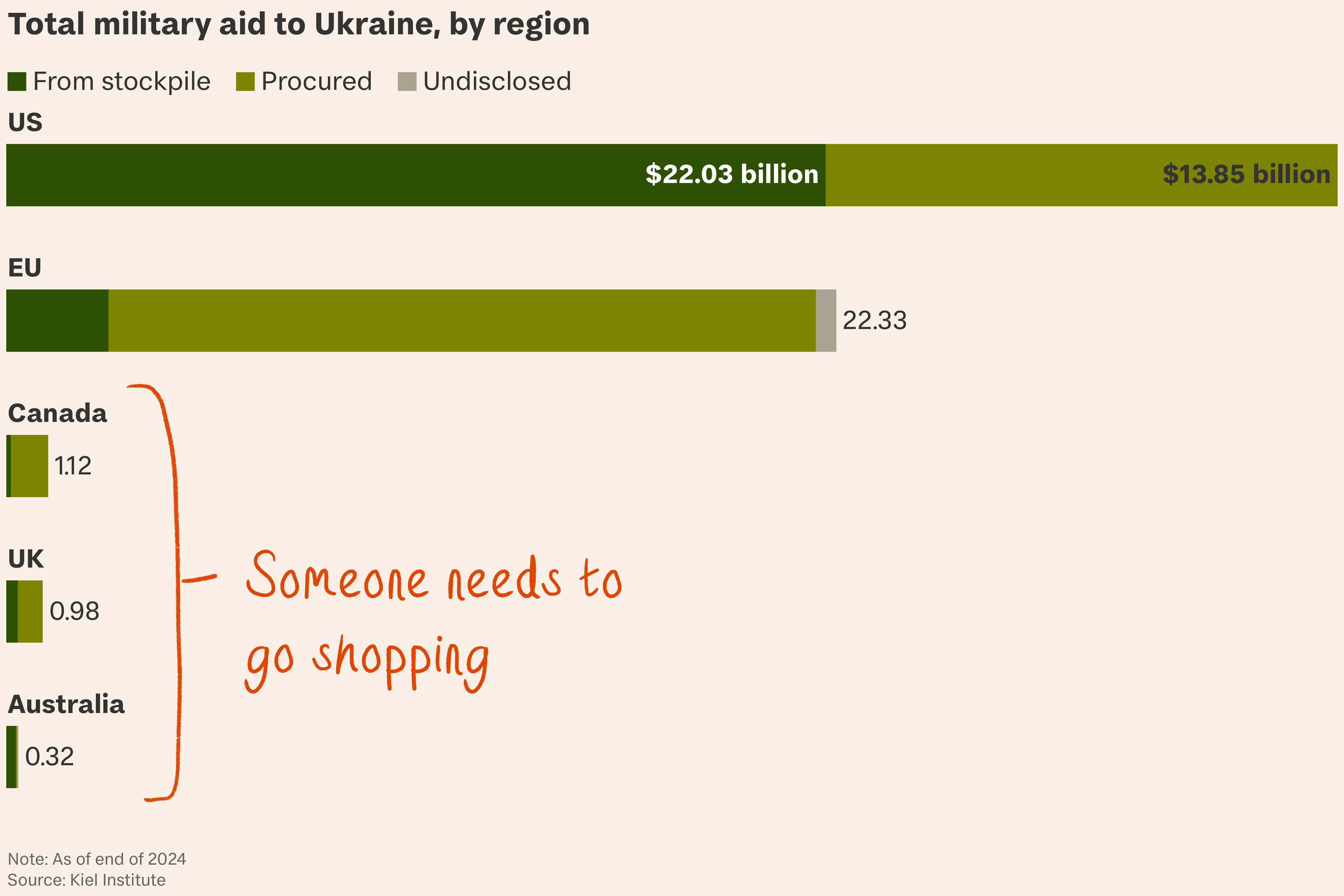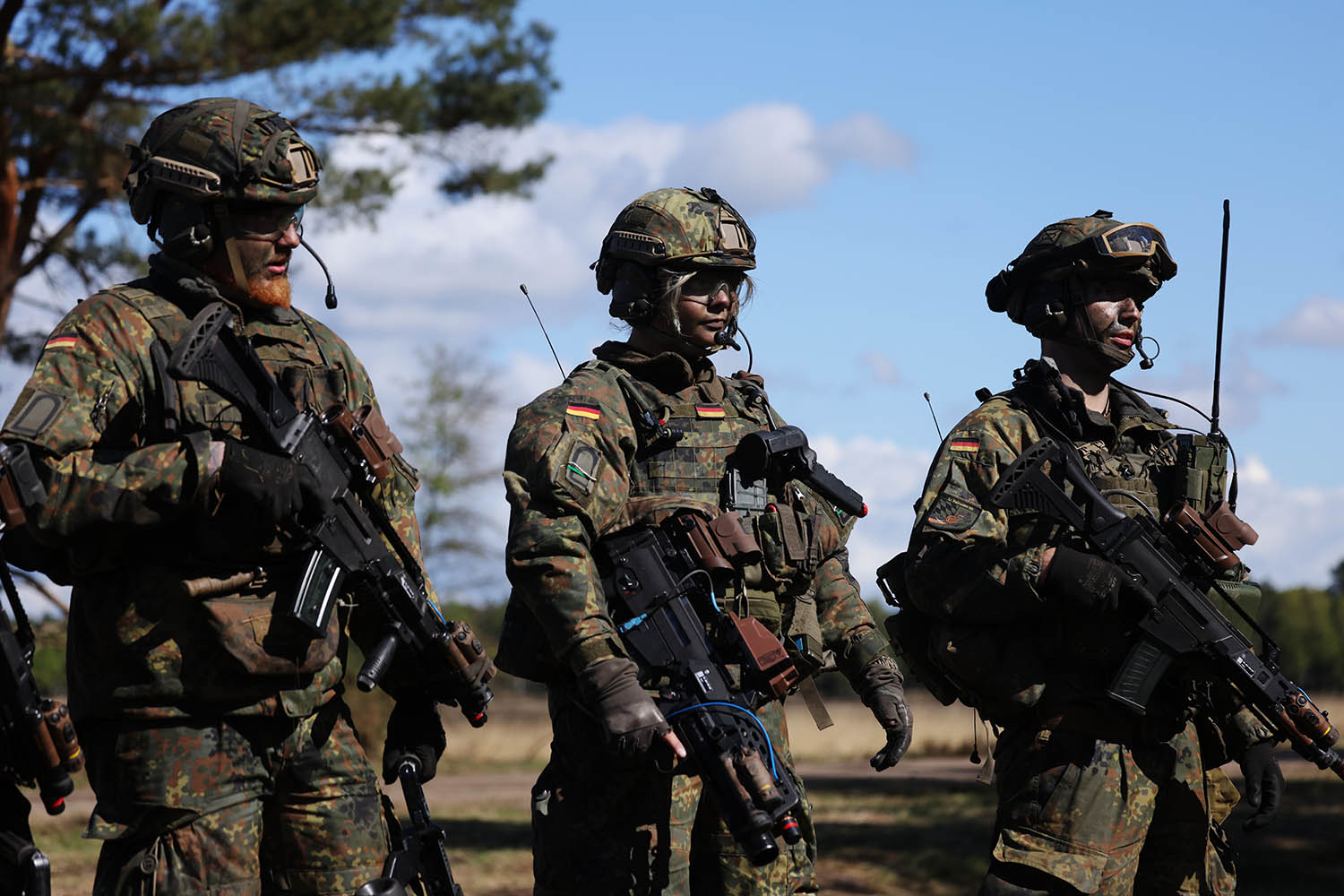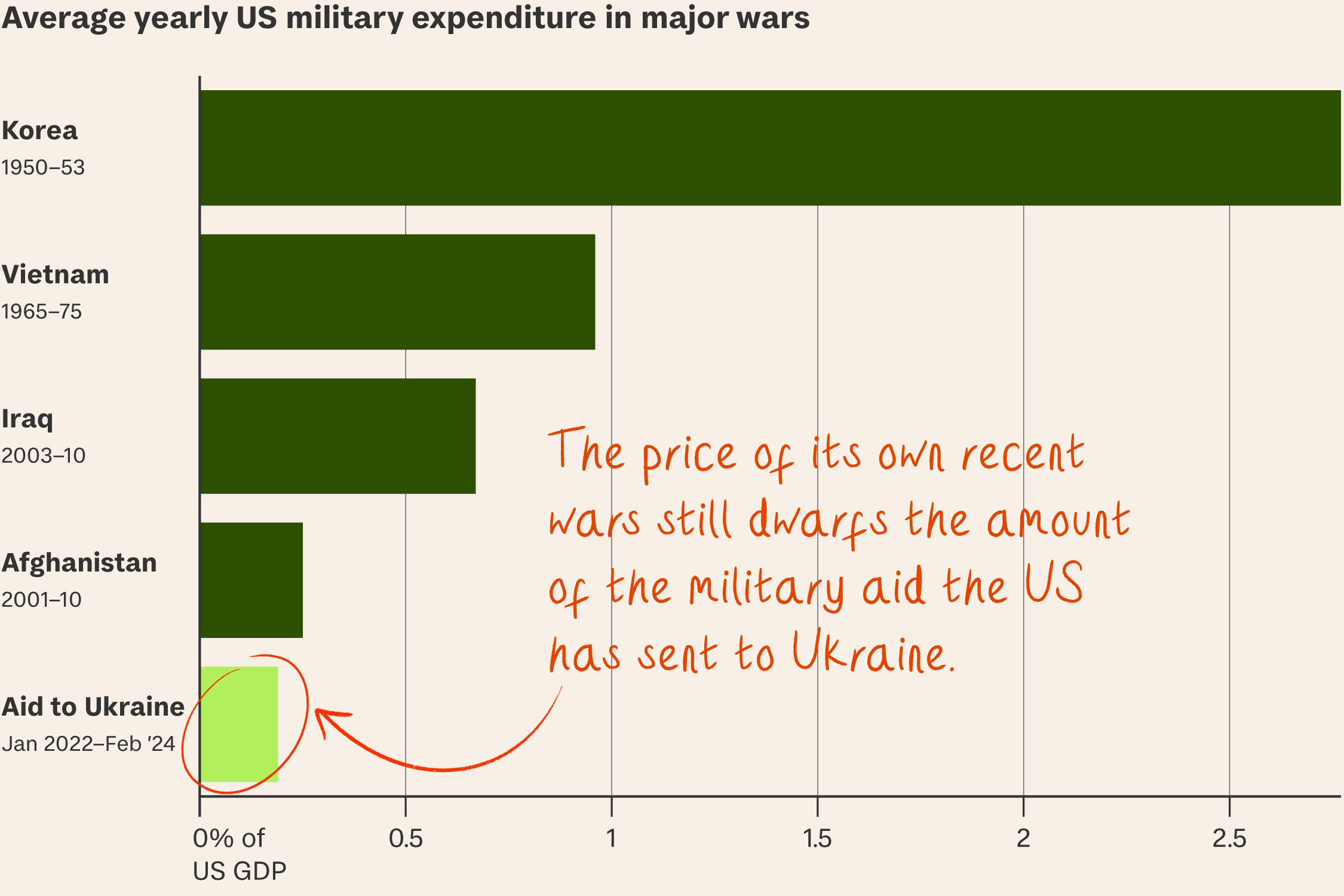
Parallels with the eve of World War Two may seem alarming, but so is the status quo.
Poland’s foreign minister said at the weekend that Europe faces a choice between a defeated Russian army outside Ukraine’s borders or a victorious one on the border of Poland. A day earlier, France’s President Macron said: “Europe is mortal; it can die.”
So what? Both scenarios are dire but plausible. Most western policymakers are focused on other things, including their own elections, and the Israel-Gaza conflict, which is as Putin would wish. The more distracted they are, the better the chances of success for his project to redraw the map of Europe by force.
- The $61 billion US aid package for Ukraine, approved last week, buys time for Kyiv but no more than that.
- Russia’s superiority in artillery, ammunition and manpower is, for the time being, overwhelming.
- Europe is starting to realise its long era of outsourced security is over, but Germany in particular is reluctant to face reality.
In his speech last week Macron also drew attention to Europe’s longstanding dependence on others for manufacturing (China) and energy (Russia). He appealed for a new self-sufficiency on all three fronts.
Just in time. The first portion of the new aid package for Ukraine looks more defensive than offensive. It should arrive in time to blunt the Russian assault in eastern Ukraine, which is intended to deliver positive headlines before Putin’s annual 9 May “Victory Day” parade. But future US shipments are conditional on a strategy for battlefield gains being presented to Congress within 45 days and updated every quarter. That will take careful planning and laborious training in Nato-style combined arms operations. As the analyst Marc Cancian notes, avoiding defeat is not the same as victory.
Time on his side. Putin likes to boast that he can wait out Ukraine’s allies and prevail. He may have a point.
- Shells. Russia’s output is two and a half times higher than before the war and nearly ten times that of Ukraine and its allies combined.
- Drones. A Russian factory built since the invasion of Ukraine is producing up to 500 Iranian-designed Shahed kamikaze drones a month.
- Missiles. Russia’s production of cruise and Iskander ballistic missiles has roughly quadrupled since the invasion, according to the Council on Foreign Relations.
- Soldiers. Putin’s army is recruiting 30,000 new soldiers a month with wages five times average, while Ukraine struggles to keep half as many men deployed.
Summer task. Ukraine shouldn’t expect or plan for a breakthrough. Given its current arsenal it can realistically hope to launch long range missile strikes on Russian military targets in Crimea and occupied Donbas; re-build its armed forces and train them at Nato bases; and prepare for a new counteroffensive in 2025.
Autumn fog. Ukraine will be anxious for confirmation of more US arms by autumn this year. That may be more feasible in the transition period than at the height of the presidential campaign: if Democrats win they’ll approve more aid, Cancian says. “If they lose, they will send it just to make a statement: ‘This is what we believe in, and you – the Republicans – have to be the ones who say ‘no’.”
Pax Europeana? Whoever wins will find Europe attempting to overhaul its security architecture:
- Organisation – it needs better coordination between the EU, Nato and the UK.
- Budgets – smaller eastern nations are pushing western ones to increase defence spending to 3 per cent of GDP or higher.
- Capacity – Macron proposes a “European defence initiative” with European preference in procurement.
Germany’s Chancellor Scholz has hitherto been a drag on such proposals but his first response to Macron’s speech was warm. Radek Sikorsky, the Polish foreign minister, noted in an interview with Bild that Hitler used Czech tanks once he’d overrun Czechoslovakia in 1939 – and suggested Putin would do the same if successful in Ukraine. There are other parallels: a vengeful leader, popular at home, appeased abroad, with a powerful Asian ally.
What’s more… Russia is a global menace, exporting corruption as well as violence and actively undermining democracy wherever it can. If history is any guide, the West is only beginning to wake up to the scale of the threat.

